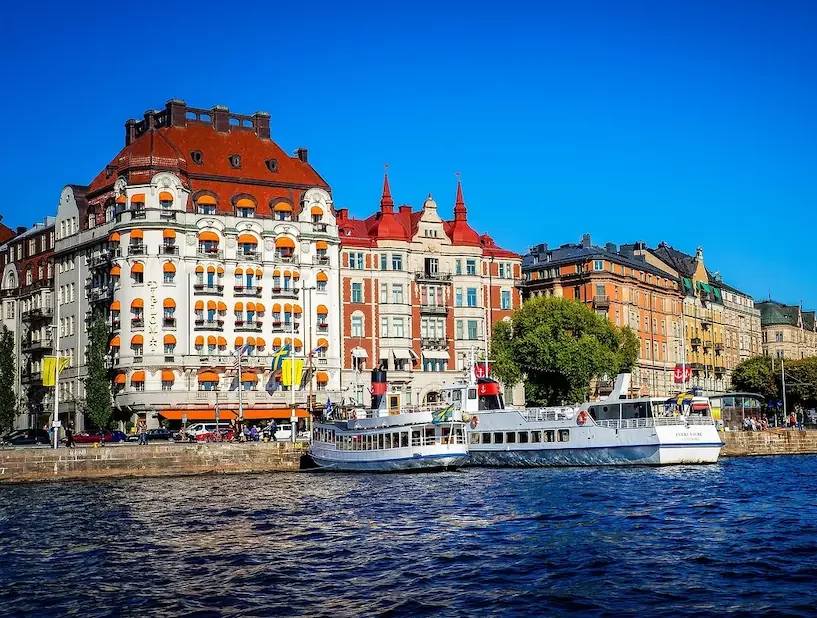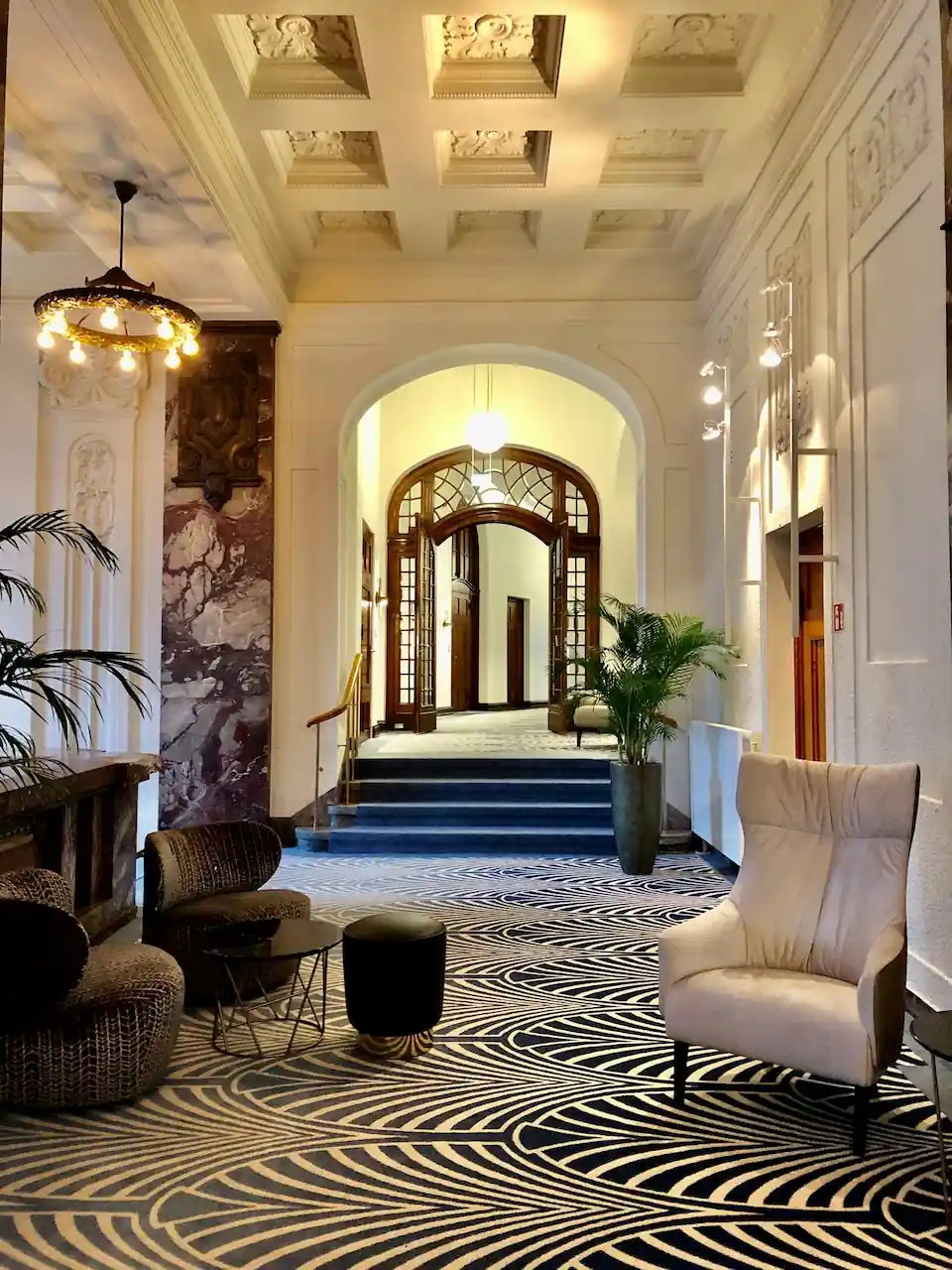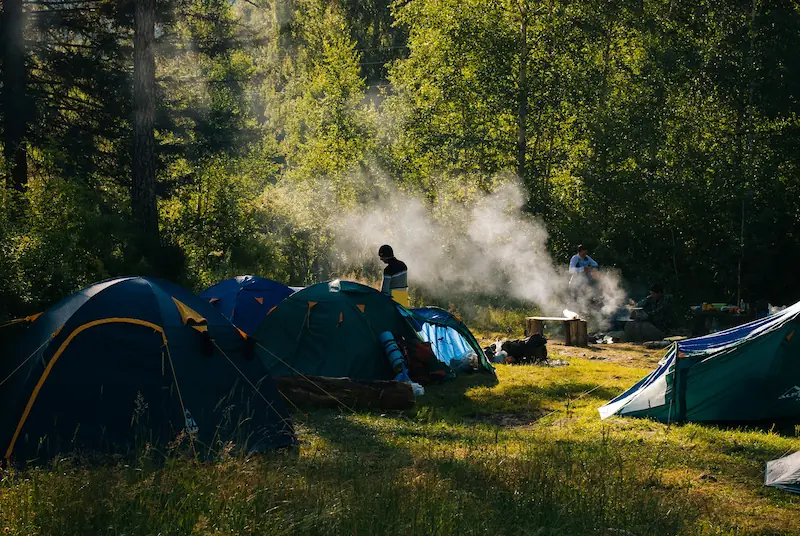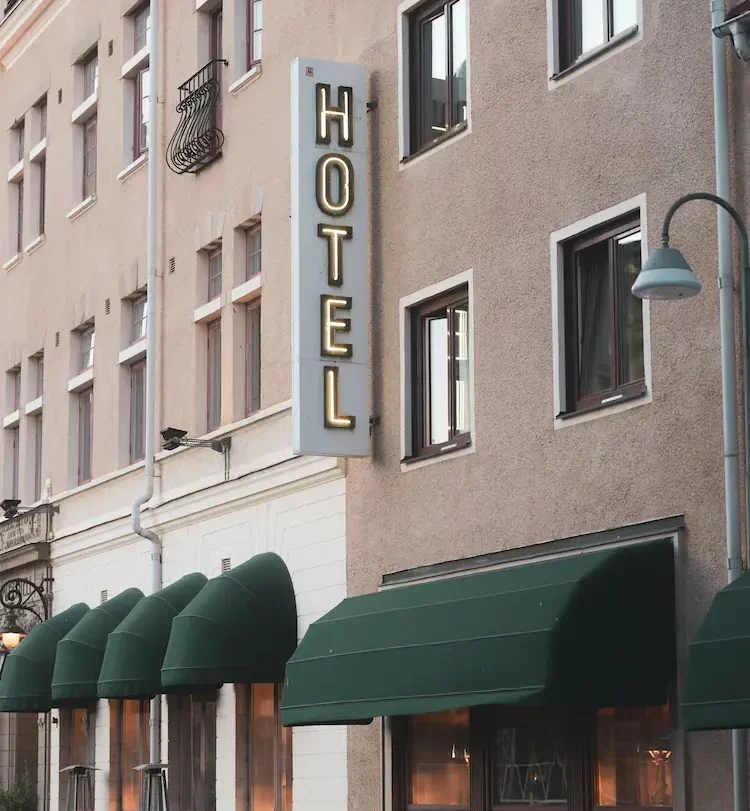Introduction – why choosing the right PMS matters
Selecting the right PMS (Property Management System) is a critical strategic decision for hotels. A well-integrated booking system is more than just a reservation tool—it serves as the backbone for seamless workflows, enhancing the guest experience, and optimizing daily operations. In an era where the hospitality industry is becoming increasingly digital, the right booking system can also reduce operational complexity by consolidating functions such as payments, customer data, and marketing into a single platform. With Modular Visit, you get an all-in-one solution that simplifies operations and enhances every stage of the guest journey—from booking to checkout.
What is a booking system and how does it work?
A booking system is a digital platform that helps hotels and campsites manage bookings, payments, and administration. Modular Visit centralizes all administrative tasks, from the initial web booking to final checkout and payment, into a single system. This eliminates the need for multiple tools, cutting costs and making work easier for staff.
Key factors to consider when choosing a booking system
Features and integrations
A robust booking system should integrate smoothly with other tools to create a comprehensive solution. Before selecting a system, it's important to identify necessary integrations and data exchange requirements. At a minimum, it should connect with a WBE (Web Booking Engine) and CRM (Customer Relationship Management) system.
Modular Visit offers a fully integrated platform. Since our PMS includes many built-in features that other providers offer as separate systems, hotels can streamline operations without unnecessary integrations. booking system is part of an entire platform, many integrations are unnecessary as the platform already includes features that other providers offer through multiple separate systems.
Integration with PMS and CRM
Seamless PMS and CRM integration is essential for efficient guest management.
A well-integrated PMS-CRM system provides a complete view of the guest journey, enabling personalized services and stronger customer relationships. With Modular Visit, PMS and CRM are fully unified, simplifying daily operations. Staff only need to learn one system, and support is handled through a single point of contact.
Ability to integrate with a Channel Manager
For hotels and campsites relying on external booking channels, a Channel Manager is essential. It synchronizes bookings and pricing in real time across all sales channels—whether guests book via phone, your website, or an OTA (Online Travel Agency). This prevents double bookings, maximizes revenue, and significantly reduces administrative workload.
POS and payment solutions
A modern POS system should ensure seamless transactions across all departments, from reception to restaurant.
Modular Visit’s fully integrated POS connects every payment method into one seamless flow. Whether guests pay online via card, Swish, or bank transfer, or settle their bill on-site at a terminal, every transaction is tracked within the platform—ensuring data secure payments in real time.
Guests today have higher expectations. Let us show you how we can take your business to the next level.
User-friendliness
A PMS should be intuitive, easy to use, and quick to learn—whether for new hires or experienced staff.
Modular Visit’s platform is designed for efficiency, ensuring a smooth transition for your team. With an intuitive interface, minimal training is needed, allowing staff to quickly adapt and work productively from day one.
Self-service for the guests
For guests, self-service means both increased convenience and control. Modular Visit's platform offers an opportunity for the customer to perform check-in, check-out, payments and purchase additional services themselves. This reduces the workload for the staff and instead they can focus on helping the guest have the best possible stay.
Scalability and adaptability
Our booking system is designed to scale up easily, both horizontally and vertically. It doesn't matter if you run a small bed and breakfast in the countryside or a large city hotel. If you go from 1 to 3 to 50 hotels, we are equipped to scale up with your business.
Opportunities to grow with the business
Our plattform is designed to scale easily, both horizontally and vertically. Whether you run a small bed and breakfast in the countryside or a large city hotel, we’ve got you covered. If you expand from 1 to 3 to 50 hotels, we are equipped to grow alongside your business.
Handling of personal data (GDPR)
It is important to ensure that GDPR is followed and that personal data is handled correctly and securely. Modular Visit’s platform complies with GDPR and the highest security standards to protect personal data and meet legal requirements.
Automation and efficiency
Automation is key to reducing manual tasks, minimizing errors, and improving efficiency. A modern hotel property management system should streamline operations through intelligent workflows that enhance productivity and free up staff time. Modular Visit automates essential processes like checking guests in and out, handling guest profiles, and ensuring smooth front office operations.
Task management is also automate, when a guest books an extra service, such as an additional bed, housekeeping is instantly notified. Checking guests in is seamless, and no-shows are handled automatically, canceling remaining nights to prevent unnecessary costs. With these features, Modular Visit optimizes both administration and hotel operations, allowing staff to focus on delivering an outstanding guest experience.
How to evaluate a booking system in practice
Functionality and usability
The most crucial factor when comparing booking systems is functionality. Does it include everything needed to run your business smoothly, both in the short term (1 year) and the long term (10 years)? It’s also important to consider the company behind the system and whether it will continue to evolve to meet future needs. Creating an internal checklist of essential “need-to-have” features versus “nice-to-have” extras is a great starting point. Keep this list updated as you explore different systems—often, you won’t realize certain features are necessary until they’re presented to you.
Cost comparison and pricing structure
Compare costs and ensure that the chosen reservation system offers a transparent and fair price structure. However, always try to compare costs in relation to what the system offers and not just in relation to other systems. Systems are used by people, and staff are a large part of the cost of most organisations. By choosing a system that makes life easier for your staff, and reduces their workload, you often reduce costs. Therefore, do not compare the cost of the different systems against each other, but instead compare what features each system offers and at what price.
Support and training from the supplier
Compare costs and ensure that the chosen booking system offers a transparent and fair pricing structure. However, always evaluate costs in relation to what the system provides, not just in comparison to other systems. Systems are used by people, and staff costs make up a significant portion of expenses for most businesses. By choosing a system that simplifies tasks for your staff and reduces their workload, you can often lower overall costs. Therefore, instead of simply comparing the costs of different systems, focus on what features each system offers and at what price.
Trial periods and demo versions
Take advantage of trial periods and demo options to ensure the system meets your business needs. This allows you to set up each system and compare them based on your specific requirements. It can be difficult to consider all aspects before actually having the chance to test a system.
Summary and recommendations
Choosing the right booking system is an investment in both operations and an opportunity to lighten the workload for staff, allowing guests to enjoy a better experience. Take the time to familiarize yourself with all aspects of the systems you are comparing. The process of learning about different systems will likely be educational, revealing various ways to manage operations—some better, some worse. Common mistakes include choosing a system lacking integrations, insufficient security, or limited support. We’ve listened to many businesses in the hospitality industry and identified the most common pitfalls. Based on these insights, we’ve designed our platform to meet all needs, ensuring smooth implementation and long-term usability. Contact us to see how we can help your business.







